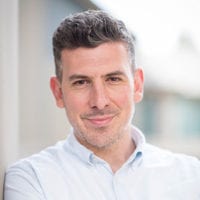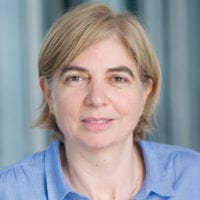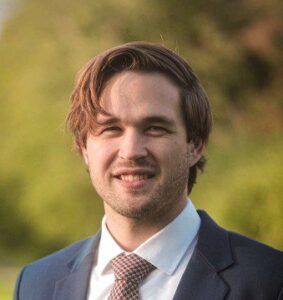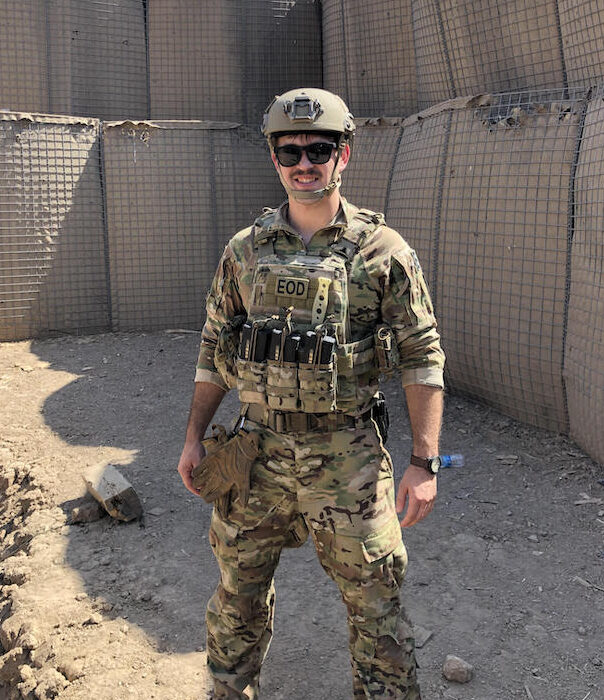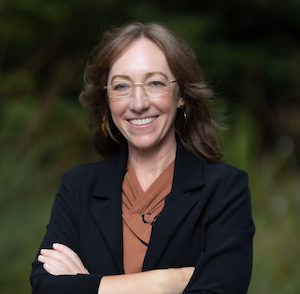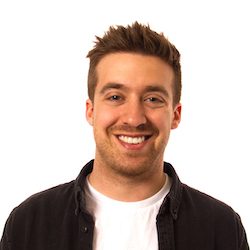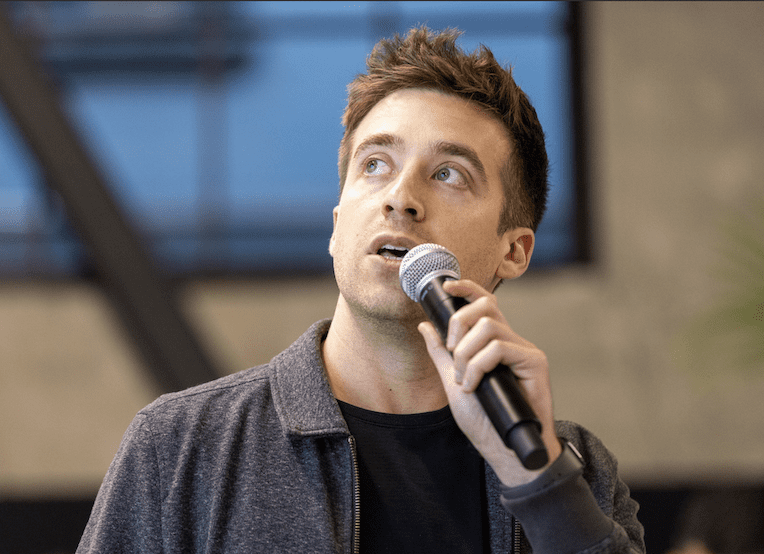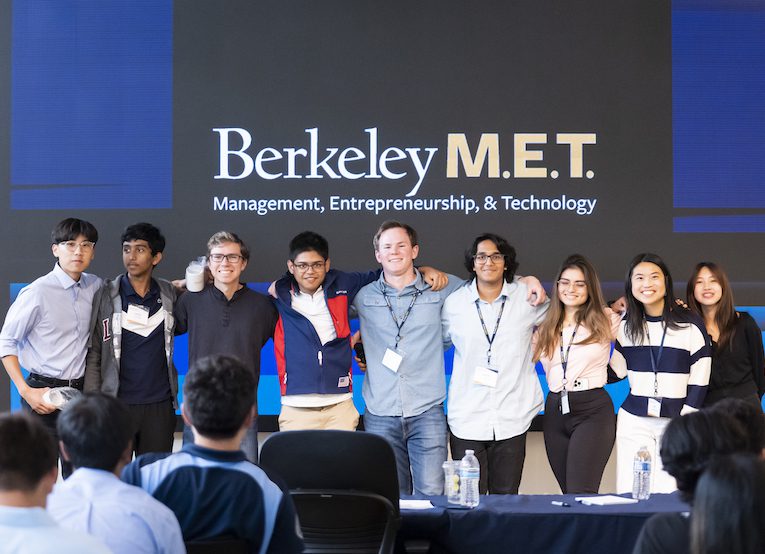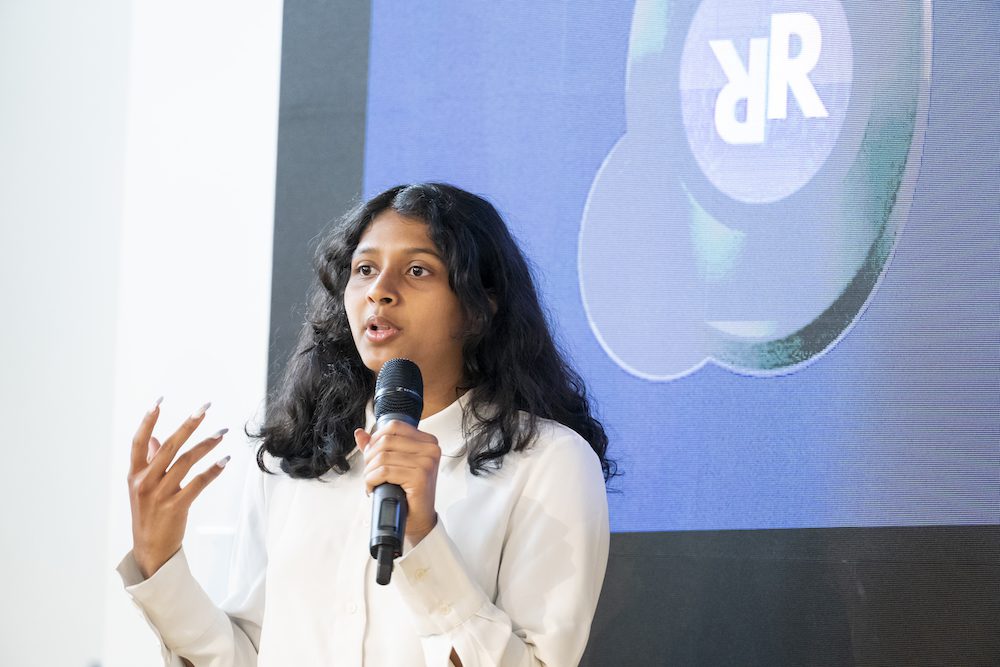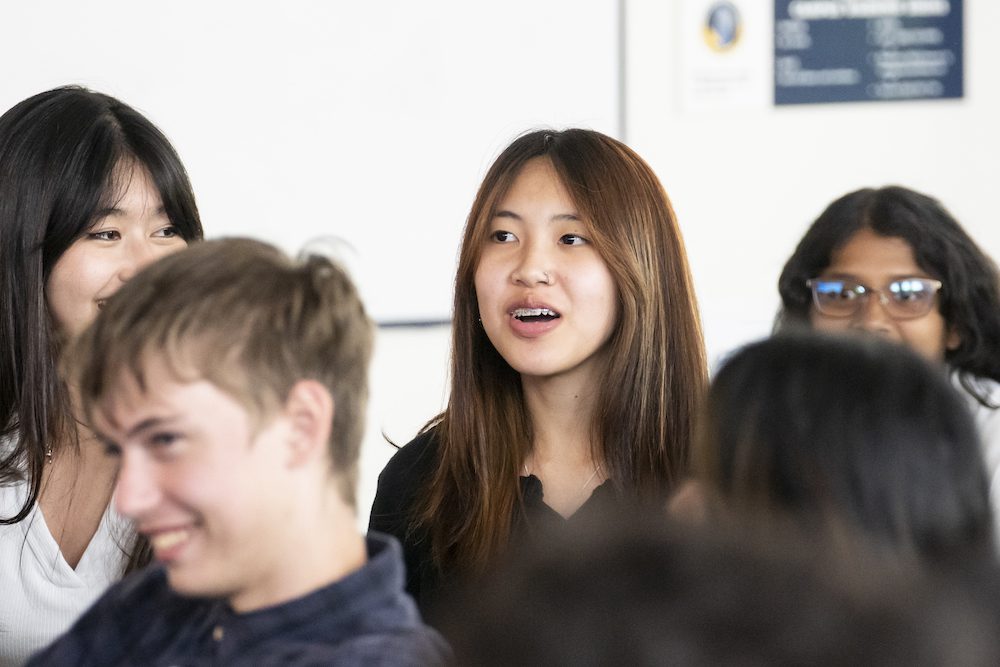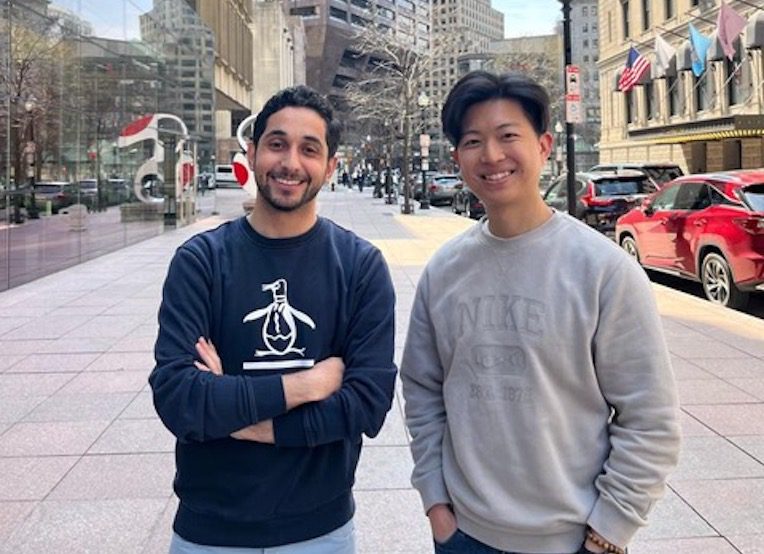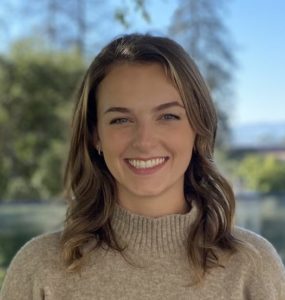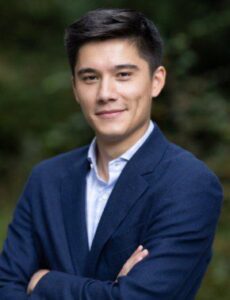
For Arnaud Paquet, MBA 24, winning a top annual UC Berkeley sustainability award was the culmination of two years of climate leadership and sustainability initiatives on campus.
Paquet, one of four winners honored last month by the UC Berkeley Chancellor’s Advisory Committee on Sustainability (CACS), received an impressive 16 nominations—including recommendations from former Berkeley Haas Dean Laura Tyson, Professor Severin Borenstein, who is faculty director of the Energy Institute at Haas, and Danner Doud-Martin, director of Haas Campus Sustainability.
Paquet has been “instrumental around everything at Haas that pertains to sustainability,” Doud-Martin said. “He is everywhere. He is always connecting with people, always talking to people. Everyone knows Arnaud.”
“He is everywhere. He is always connecting with people, always talking to people. Everyone knows Arnaud.” – Danner Doud-Martin
Proof point: When Paquet attended the annual ClimateCAP conference two years ago as a Haas fellow, Doud-Martin said the organizers ran a contest to see who could track the most connections made during the conference on their phones. “He won the whole thing,” Doud-Martin said.
Paquet, who grew up in Brussels and holds bachelor’s and master’s degrees in energy engineering, has spent his career working on the transition from fossil fuels to clean energy. He came to Haas planning to make new connections and go deeper into solving climate change.
One of his first moves was to join the Berkeley Energy & Resources Collaborative, (BERC), the largest on-campus organization that unites students, alumni, faculty, and industry leaders seeking to turn research toward solving energy and environmental problems. He quickly dove in, helping to organize their annual Energy Summit. Then, he took on the role of co-president, winning the Chancellor’s award, in part, for his work with BERC, which is entirely student-run and spans 11 colleges and 28 departments across UC Berkeley.
“BERC is special because it’s campuswide,” he said. “You can’t assume that climate change can be solved only through business. It’s going to be a cross-functional problem to solve. And so you need all disciplines—business policy, law, engineering, and so on.”
Paquet also spearheaded the inaugural Women in Climate event at UC Berkeley to create a platform for underrepresented members in BERC and the industry. Borenstein said Paquet showed a strong commitment to diversity by launching the conference, “giving diverse voices a platform in the climate crisis.”

Paquet, along with Angelina Donhoff, MBA 24, became the first co-vice president of Sustainability for the Haas MBA Association (MBAA). The pair, both members of the Haas Sustainability Task Force, helped create the new VP role by empowering fellow MBA students to vote for the change.
Now, they are working with Doud-Martin on a grant-funded pilot program studying the climate cost of airline travel—using an MBA course that requires students to travel to Denmark as a study subject. Arnaud plans to write recommendations addressing the challenge of sourcing high-quality carbon offsets for air travel and the risk of greenwashing.
He also served as a researcher and co-author for former Dean Tyson and venture capital firm Angeleno Group in a forthcoming article on innovations in climate finance for the California Management Review.
A startup plan
Outside of Haas, Paquet has worked for multiple Bay Area climate-focused startups, including Twelve and Granular Energy, the latter of which he still works part-time as a business development lead. After graduation, he plans to join a startup tackling the challenge of decarbonizing the hard-to-abate sectors, which account for a third of global carbon emissions.
He said he’s enjoyed much of what makes Haas a unique place. “We have a lot of folks coming to Haas who are mission-driven and want to have a positive impact. And you will see a lot of students either starting their own company or going into climate tech, sustainability, and impact investing,” Paquet said.
“It’s an exciting time for Haas. The school is launching a new MBA/MCS (master of climate solutions) degree with the Rausser College of Natural Resources and Haas is hosting ClimateCAP next year. I feel like UC Berkeley really prepared me well for what’s next, and I’m grateful for it.”
